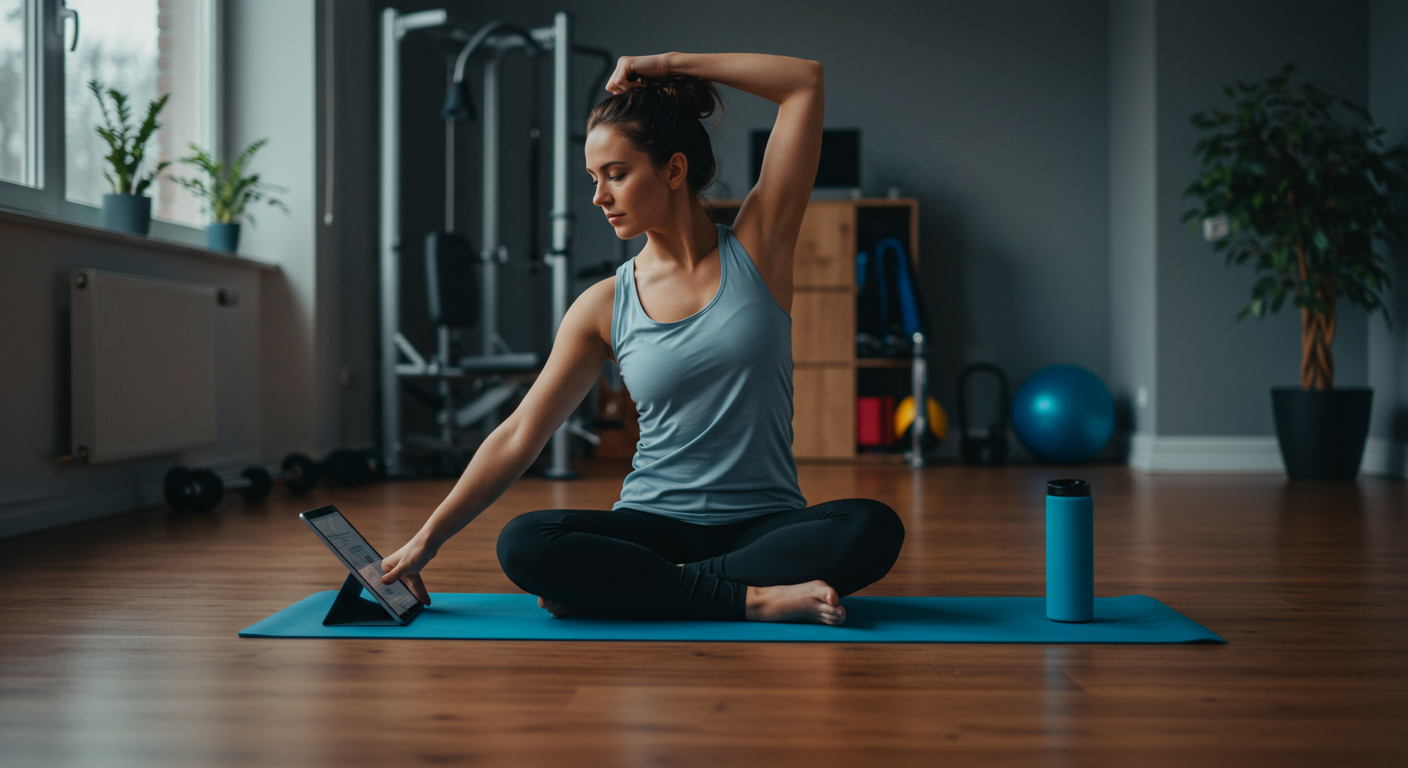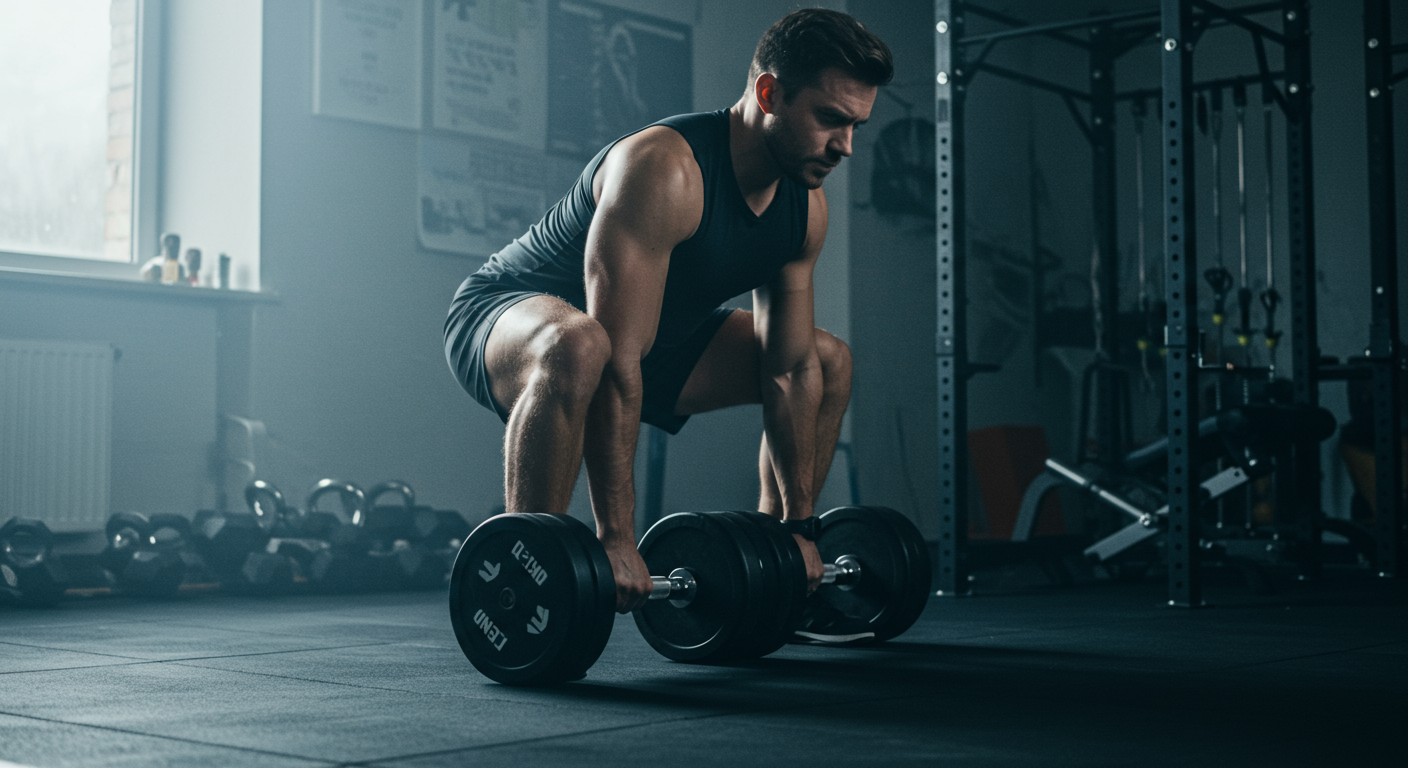Why This Reddit Post About a DEXA Scan Caught My Eye
I was scrolling through r/loseit the other day, and a post about someone's DEXA scan results immediately grabbed my attention. This person shared their experience getting a DEXA scan and discovering some surprising things about their body composition – from having surprisingly light bones to carrying more visceral fat than recommended. It wasn't just the unusual findings that were interesting, but the practical steps they were taking to improve their health based on the results. It’s a perfect example of using data to inform your fitness journey, and I thought it would be helpful to break down what a DEXA scan is, what it can tell you, and how you can use that information to optimize your own health and fitness goals.
This whole concept highlights something crucial: understanding what's happening inside your body is just as important as what you see on the outside. We often focus on weight, appearance, and general fitness levels, but digging deeper with tools like DEXA scans can reveal hidden imbalances and areas that need specific attention. I think it's easy to get caught up in chasing arbitrary numbers on a scale or striving for an unrealistic body image. But, what if we shifted our focus to understanding our unique body composition and making targeted changes based on scientific data? That's the approach this Redditor took, and it's something we can all learn from.

Breaking Down the DEXA Scan Results: What's Important?
So, what exactly did this person learn from their DEXA scan? Let's break it down. First, the realization that their bones only weighed 6.5 pounds. That's a pretty striking number, and it highlights how much of our overall weight is made up of muscle, fat, and water, rather than bone. While bone weight itself isn't necessarily a critical health marker, bone density is. The Redditor mentioned being in the 98th percentile for bone health, which is fantastic. Maintaining strong bones is especially important as we age, particularly for women going through perimenopause. Bone density can decrease with age, increasing the risk of fractures and osteoporosis. Factors like weight-bearing exercise, calcium intake, and vitamin D levels play a significant role in keeping bones strong and healthy.
Next, the Redditor discovered an imbalance in their fat distribution, specifically having higher-than-recommended levels of visceral fat. Visceral fat is the fat that surrounds your internal organs in the abdominal area. Unlike subcutaneous fat, which is located just beneath the skin, visceral fat is metabolically active and can contribute to various health problems, including insulin resistance, type 2 diabetes, heart disease, and certain cancers. The recommended level of visceral fat is generally considered to be below 1 pound, and this person was at 3 pounds. That was a crucial piece of information, and it drove their decision to make specific changes to their exercise routine and diet. Finally, the Redditor's body fat percentage was 41%, with a target of around 30%. This is a common goal for many people looking to improve their body composition and overall health. Losing fat while preserving muscle mass is often a key focus in fitness and nutrition plans.
What This DEXA Scan Reveals About Your Own Fitness Journey
What does this DEXA scan experience mean for you? Well, it underscores the importance of getting a baseline understanding of your body composition. While a DEXA scan provides the most detailed information, there are other ways to assess your body fat percentage, muscle mass, and bone density. For example, you can use skinfold calipers to measure subcutaneous fat, bioelectrical impedance analysis (BIA) scales to estimate body fat percentage, and even simple measurements like waist circumference to assess visceral fat risk. These methods aren't as precise as a DEXA scan, but they can still provide valuable insights into your overall health.
More importantly, this Reddit post highlights the power of using data to inform your fitness decisions. Instead of blindly following generic workout plans or fad diets, you can tailor your approach based on your specific needs and goals. For instance, if you discover that you have higher-than-recommended levels of visceral fat, you might focus on incorporating more high-intensity interval training (HIIT) into your routine, as HIIT has been shown to be effective in reducing visceral fat. Similarly, if your bone density is lower than optimal, you might prioritize weight-bearing exercises and calcium-rich foods to strengthen your bones. The key takeaway is to treat your body as a unique system and use data to guide your choices.
The Reality Nobody Talks About: DEXA Scans and Body Image
Let's be real: getting a DEXA scan and seeing the numbers can be a double-edged sword. On one hand, it can be incredibly motivating to have concrete data about your body composition. On the other hand, it can also trigger feelings of insecurity and self-doubt, especially if the results aren't what you expected. It's crucial to approach this information with a healthy mindset and avoid getting fixated on specific numbers. Remember that body composition is just one aspect of overall health, and it doesn't define your worth as a person.
I've seen people get really hung up on their body fat percentage or muscle mass, to the point where it becomes obsessive and unhealthy. It's important to remember that these numbers are just a snapshot in time and can fluctuate based on various factors like hydration levels, stress, and sleep. Instead of striving for some arbitrary ideal, focus on making sustainable lifestyle changes that improve your overall health and well-being. That might mean incorporating more fruits and vegetables into your diet, getting regular exercise, managing stress levels, and prioritizing sleep. The goal is to create a healthy and balanced lifestyle that you can maintain long-term, rather than chasing short-term fixes based on a single DEXA scan result. Additionally, keep in mind that the “ideal” body composition varies greatly depending on genetics, gender, age, and activity level.
Making This Work for Your Life: Practical Adaptations and Alternatives
Okay, so you're intrigued by the idea of getting a DEXA scan and using the data to inform your fitness journey. But what if you don't have access to a DEXA scanner, or you can't afford one? Don't worry, there are plenty of other ways to assess your body composition and track your progress. As I mentioned earlier, skinfold calipers, BIA scales, and waist circumference measurements can provide valuable insights, even if they're not as precise as a DEXA scan. You can also use progress photos, measurements of your arms, legs, and chest, and even how your clothes fit to track changes in your body composition over time.
Also, consider your lifestyle and adapt your fitness plan accordingly. If you have a busy schedule, you might focus on shorter, more intense workouts that you can fit into your day. If you're on a tight budget, you can find plenty of free workout videos online and use bodyweight exercises to build strength. If you have limited access to healthy food options, you can prioritize whole, unprocessed foods and focus on meal prepping to ensure you're getting the nutrients you need. The key is to find a sustainable approach that works for you and your unique circumstances.

Actually Putting This Into Practice: A Step-by-Step Guide
So, how can you actually put all of this into practice? Here's a step-by-step guide to help you get started:
- Assess Your Current Body Composition: Consider getting a DEXA scan if it's accessible and affordable. Otherwise, use skinfold calipers, BIA scales, or waist circumference measurements to get a baseline understanding of your body fat percentage, muscle mass, and visceral fat risk.
- Set Realistic Goals: Based on your assessment, set realistic and achievable goals for improving your body composition. Focus on small, sustainable changes rather than drastic measures.
- Create a Personalized Fitness Plan: Tailor your workout routine to your specific needs and goals. Incorporate both cardio and strength training exercises, and consider adding HIIT to reduce visceral fat.
- Optimize Your Diet: Focus on eating whole, unprocessed foods and prioritize protein, fiber, and healthy fats. Consider reducing your calorie intake slightly to promote fat loss.
- Track Your Progress: Monitor your body composition regularly using the same methods you used for your initial assessment. Track your weight, measurements, and progress photos to stay motivated.
- Adjust as Needed: Be prepared to adjust your plan as you progress. If you hit a plateau or encounter challenges, don't be afraid to experiment with different workout routines, dietary strategies, or other lifestyle changes.
- Be Patient and Persistent: Remember that it takes time and effort to improve your body composition. Be patient with yourself, stay persistent, and celebrate your successes along the way.
My Take on All This: Data-Driven Fitness, But With a Grain of Salt
Here's what I think about all this: Data is powerful, but it's not the whole story. A DEXA scan can provide valuable insights into your body composition, but it's just one piece of the puzzle. Your overall health and well-being are influenced by a complex interplay of factors, including genetics, lifestyle, stress levels, and social support. It's important to use data to inform your decisions, but not to let it dictate your every move. Listen to your body, pay attention to how you feel, and prioritize sustainable lifestyle changes that improve your overall health and well-being.
Maybe I'm wrong, but I believe that focusing on the process, rather than the outcome, is the key to long-term success. Instead of obsessing over your body fat percentage or muscle mass, focus on building healthy habits that you enjoy and can maintain for the rest of your life. That might mean finding a workout routine that you love, cooking healthy meals with friends and family, or simply taking time each day to relax and de-stress. The more you enjoy the process, the more likely you are to stick with it and achieve your goals. And who knows, you might even surprise yourself with the results you achieve along the way!